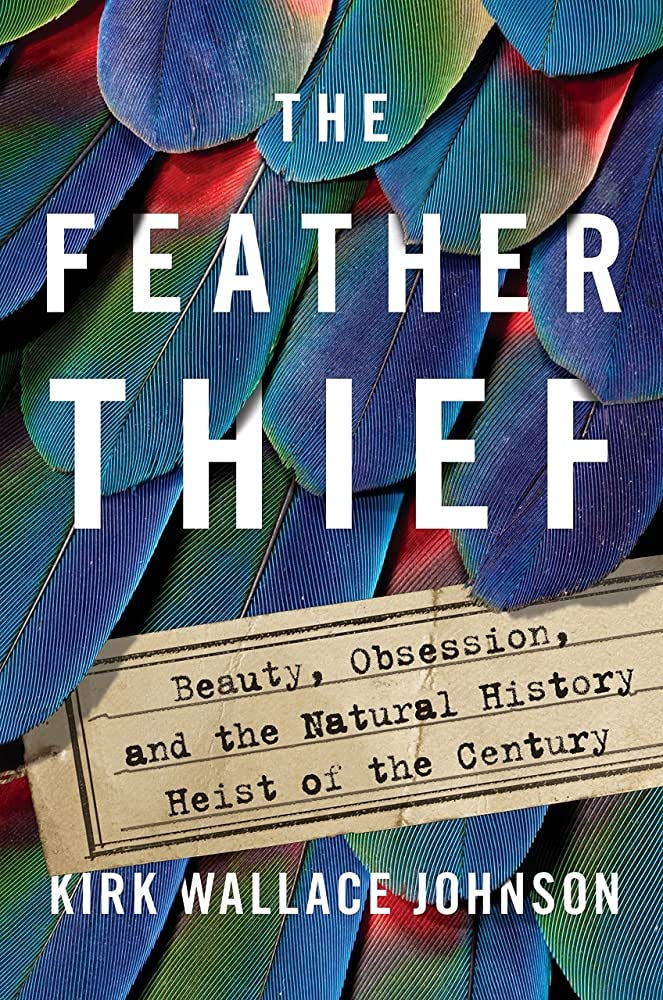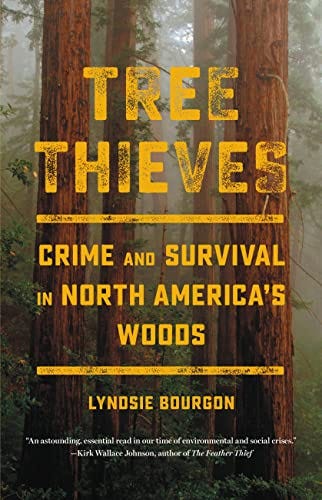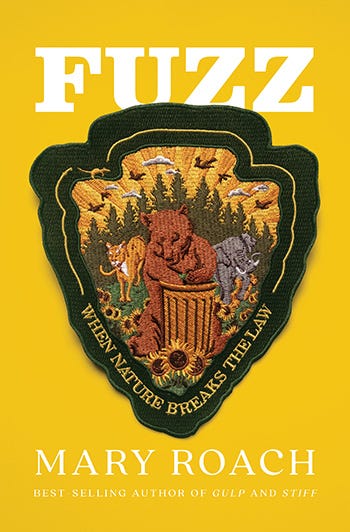Hello Readers,
It’s hard to fathom the devastation in Turkey and Syria this week. There’s a sense of unreality about that scale of loss. I have multiple coworkers in Istanbul, roughly an 11-hour drive from the quake’s epicenter, who have let me know the best organizations to donate to if you’re so moved:
AKUT Search and Rescue Association: https://www.akut.org.tr/en/donation
As I’ve written before in this newsletter, in the midst of tragedy and upheaval, we still have books. Even in the most dire circumstances, they can provide escape, comfort, and healing.
This week I’m featuring three books about crime and nature. All three were audiobook “reads” for me and all of them were excellently narrated — though one of them fell a little short of my expectations.
Let’s jump in.
Upgrade to a paid subscription to support this newsletter and to get my weekly “This & That” feature, which is full of links, lists, ideas, recommendations, and more:
The Feather Thief: Beauty, Obsession, and the Natural History Heist of the Century by Kirk Wallace Johnson
Fly tying, for the uninitiated, is the craft of making “flies” — or lures — for fly fishing. What’s interesting about this community is that the elite fly tyers (yes, that’s the correct spelling) don’t even necessarily fish. They’re in it to make the most beautiful flies with the rarest materials — which often means the feathers of endangered or even extinct birds.
This is the world that Kirk Wallace Johnson dives into for the sake of solving the 2009 mystery of the hundreds of dead birds stolen from a famed natural history museum on the outskirts of London.
I loved Johnson’s storytelling from the first page. He explores the odd history of rare ornithological specimens, how the fly tying community became such an obsessive lot, and why a young man decided he needed to steal suitcases worth of birds from a poorly secured English institution.
Books about obsession are like catnip for me. What’s fun about this one is that the author gets as infatuated with his investigation as the fly tyers are about their feathers.
The Feather Thief is a quick, engrossing read about something you never thought you could possibly care about. I love it when that happens.
Tree Thieves: Crime and Survival in North America's Woods by Lyndsie Bourgon
Though it doesn’t get as much attention as museum heists, tree theft is actually a massive problem in North America — to the tune of over a billion dollars annually.
Across millions of acres of protected forest, there are just a few handfuls of rangers to patrol that land. So it’s pretty easy for men with chainsaws to steal into the woods, cut down some timber, and sell it to a mill or a coastal tourist shop.
Seems kind of cut and dry, right? The rangers are the good guys, the thieves are the bad guys, and we just need better systems to catch ‘em.
Turns out, as it often does, that the reality isn’t so straightforward. The woods of the Pacific Northwest haven’t always been federally protected. Generations of families made a living from those trees and even the shorelines upon which valuable driftwood has washed up.
When a way of life is taken away in an instant, as it was in the 1960s and ‘70s for a lot of PNWers, the consequences echo for decades. I don't know what I expected from this book, but I definitely didn’t anticipate so much empathy — for trees, for rangers, for black market loggers.
Bourgon tells an important story about crime and nature and society. If the premise at all intrigues you, I highly recommend Tree Thieves.
Fuzz: When Nature Breaks the Law by Mary Roach
I’ve enjoyed a couple of Mary Roach’s books in the past. Gulp and Bonk — which examine the digestive system and sex, respectively — were weird, funny, interesting, and easy to connect with. We all have bodies, after all. Fuzz, which is about the intersection of nature and the human legal system, fell a bit flat.
Here’s a sampling of the subjects she covers:
Bear attack forensics
Birds interfering with aircraft in all kinds of ways
Trees falling on unsuspecting humans
Monkey muggings
Killer elephants
There’s no denying that Roach’s characteristic wit and irreverent writing style are on display. Taken piecemeal, it’s hard to critique Fuzz. Every chapter is interesting enough on its own.
What let me down was the lack of an overarching narrative — there just wasn’t much of a point. There were also a couple chapters that didn’t seem to connect to Roach’s stated premise of when nature breaks the law; for instance, when beans are manufactured into poison (which is obviously a very human crime).
Fuzz was just a little too disconnected for me. It would’ve made an interesting podcast miniseries, but as an entire book, I didn’t feel like it was worth my time.
That’s it for me this week! Thanks for the time and inbox space — I deeply appreciate it.
-Jeremy







Those first two sounds fantastic. Reminds me of Miles Harvey’s “The Island of Lost Maps,” a true-crime story about a map thief, and Karl Sabbagh’s “A Rum Affair: A True Story Of Botanical Fraud,” in which a guy convinces the world a rare sedge grows where it doesn’t. The obsession language above triggered the memory. People’s obsessions open up whole worlds for themselves, and writers illuminating those obsessions open up whole worlds for us readers—worlds we can hardly imagine existing before cracking the cover.
LOVE The Feather Thief! Who knew I could ever care so much about fly ties?!